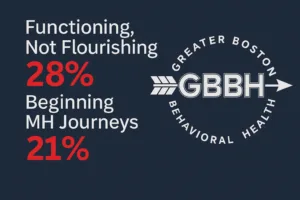You don’t feel broken.
But you don’t quite feel okay, either.
It’s a strange place to be—functioning on the outside, but feeling something’s off underneath. Maybe it’s the stress that doesn’t let up. The numbness that lingers. The way you keep thinking, “Is this just how life feels?”
You haven’t hit rock bottom. You’re not in crisis. But you’re starting to wonder if something deeper might be going on—and what it might look like to actually get help.
If you’re early in your mental health journey, you might have come across the term partial hospitalization program in Boston. And if that sounds intense for where you’re at, this blog is for you.
Let’s walk through what a PHP really is, who it’s for, and how to choose one—especially if you’re not quite sure what you’re looking for yet.
What Is a Partial Hospitalization Program (Really)?
Let’s start by debunking the name.
“Partial hospitalization” sounds like something for people in medical emergencies. But that’s not what it means here. A partial hospitalization program, or PHP, is simply a structured form of daytime mental health care. You attend therapy, group work, and other treatments during the day, then return home in the evenings.
You don’t stay overnight. You don’t lose your autonomy. But you do get a consistent, supportive environment to explore what’s really going on inside you.
PHP is more involved than traditional outpatient therapy, but less restrictive than inpatient hospitalization. It’s often used by people who:
- Are struggling emotionally but still stable enough to be home at night
- Need more support than a weekly therapy session can provide
- Want focused time to work on underlying mental health patterns
- Are in a transition period—post-crisis, post-leave, or just starting out
You don’t have to fit a diagnosis to benefit from PHP. You just have to be human—and curious about feeling better.
Ask Yourself: Am I Ready to Explore—Not Just Cope?
Being sober curious—or mentally curious—isn’t about labeling yourself. It’s about listening to what you’ve been pushing down.
Ask yourself:
- Have I been “fine” for a long time… but it’s starting to wear thin?
- Am I going through the motions but feeling emotionally flat?
- Have I reached the edge of my usual coping tools?
- Am I curious what support might actually feel like?
These aren’t crisis questions. They’re self-honesty questions. If your answer is “maybe” or “I don’t know,” you might already be further along than you think.
At Greater Boston Behavioral Health, our partial hospitalization program in Boston is designed to help people sort through the big “maybes.” You don’t have to arrive with a full story. You just need the willingness to look.
What to Look for in a PHP When You’re New to This
If you’re at the start of your mental health journey, not every program will feel like the right fit—and that’s okay. Here’s what to prioritize:
1. Gentle, non-clinical culture
Look for a program that understands the difference between clinical care and human care. Early explorers need time, space, and respect—not pressure.
2. Flexible programming
Ask how long the program lasts. While PHPs are typically 2–4 weeks or more, good programs adjust based on your needs, not arbitrary deadlines.
3. Focus on emotional safety
You should never feel judged, rushed, or pathologized. Group spaces should feel supportive and inclusive, not overwhelming or trauma-dumping.
4. Clear communication about expectations
If the program assumes you already “know the lingo” or feel comfortable with mental health language, it’s not the right one.
5. A balance of structure and permission
You’re not signing up to fix everything in 30 days. You’re signing up to start exploring with support.
Real Talk: You Don’t Have to Hit Rock Bottom to Get Help
One of the biggest lies about mental health treatment is that you need to be in crisis to deserve care.
Here’s the truth: You can ask for help before things fall apart.
You can ask just because something feels off.
You can ask because you’re curious, not because you’re desperate.
PHP is not a punishment. It’s a proactive move—a sign that you’re paying attention to your inner life and want to take it seriously.
In places like Needham, Newton, or Dedham, MA, we see more people each year stepping into care not because they’re falling apart, but because they want something more sustainable than survival mode.
You can be one of them.
Make Sure the Program Supports Self-Discovery, Not Just Symptom Management
Some programs focus entirely on reducing symptoms—and while that’s important, it’s not enough.
Early-stage clients often need help asking the bigger questions, like:
- Who am I when I’m not performing?
- What hurts that I’ve never talked about?
- What does enough feel like?
A good PHP should support this kind of exploration, not rush you into checkboxes or scripted goals. Look for programs that offer:
- Values-based therapy
- Identity exploration
- Trauma-informed care
- Space for spiritual, existential, or emotional curiosity
Talk to Someone Before You Decide
Don’t let the acronym scare you. You don’t have to enroll just to learn more.
Most PHPs—including ours—offer free consultations or pre-admissions calls. You can ask questions, share where you’re at, and find out if the program actually fits your life.
“I wasn’t sure if PHP was ‘too much.’ But once I talked to someone and realized it was more like a class for mental health than a hospital stay, I felt a lot better about it.”
— Sober Curious Client, 2023
If you’re wondering if this is for you, let that be the start of a conversation—not a reason to walk away.
FAQs About PHP for Sober Curious and First-Time Seekers
What if I’m not diagnosed with anything yet?
That’s okay. Many people enter PHP while still figuring things out. Our team helps assess whether this level of care is appropriate and what you might be struggling with—together, not from a place of assumption.
Do I have to commit to a full month?
No. Many PHPs start with a 2–3 week plan and adjust as needed. You won’t be locked into something that doesn’t work. At GBHB, we adjust to your progress and needs.
Will I be in groups with people who are in crisis?
Our PHP is built to match people with similar stability levels. While we welcome a range of experiences, we’re mindful about creating emotionally safe, well-matched group spaces—especially for those early in their journey.
Can I work or go to school while doing PHP?
Because PHP usually runs during daytime hours, full-time work or school may be tough to manage simultaneously. But we’ll talk with you about your schedule and goals and see what works best—including possible step-down options like IOP later.
Is this confidential? I’m not ready to tell everyone I’m in treatment.
Yes. Your participation in PHP is protected by law. Unless you choose to share it, no one needs to know—including employers, friends, or family.
I’m nervous about sharing personal stuff. Do I have to?
You’ll never be forced to overshare. We create spaces that invite honesty but never demand vulnerability. You set the pace. You get to decide when it feels safe to open up.
This Isn’t About Labels. It’s About Liberation.
Choosing a PHP doesn’t mean you’re “mentally ill.” It doesn’t mean you’ve failed. It just means you’ve noticed something inside you that needs attention—and you’re ready to give it some room.
That’s not weakness. That’s wisdom.
Whether you’re emotionally worn out or simply curious about what else life could feel like, you don’t have to figure it out alone.
Call (888) 450-3097 to learn more about our Partial Hospitalization Program services in Boston, Massachusetts.
We’ll meet you with openness, not expectation. Your questions belong here—and so do you.


